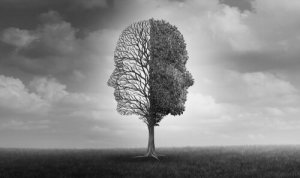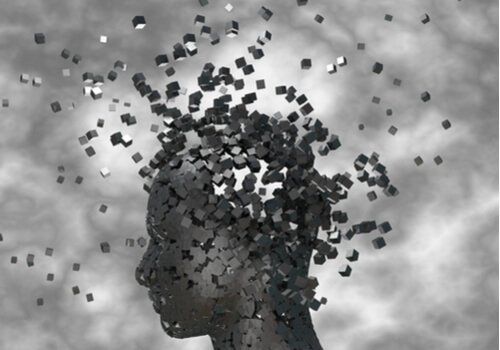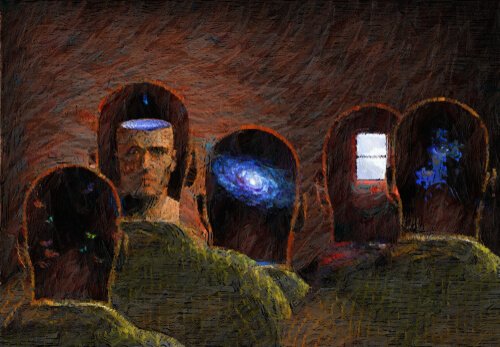Harald Schultz-Hencke: A Dissident Psychoanalyst

Harald Schultz-Hencke was a German psychiatrist and psychotherapist who was born in Berlin on August 18th, 1892. Although there isn’t a lot of information on his childhood, we do know that his mother was a graphologist and his father was a physiochemist. His family was well-off and, as far as we know, Schultz-Hencke’s early years were pleasant and uneventful.
We also know that Harald Schultz-Hencke fought in the trenches of World War I, which seems to have been a traumatic experience for him. After the war, he went back to his hometown to study medicine. During his studies, he became very interested in the work of Sigmund Freud.
Today, we’re going to delve into the life and work of this somewhat ambiguous and mysterious German psychoanalyst.
“Try not to become a man of success, but rather try to become a man of value.”
-Albert Einstein-
Harald Schultz-Hencke’s Introduction to Psychoanalysis
A psychoanalytical session with Sandor Rado inspired Schultz-Hencke to focus his career on psychotherapy. From the beginning, however, he disagreed with some aspects of Freud’s theory on sexuality and the unconscious.
As a result, Schultz-Hencke was excluded from the German Psychoanalytical Society. After this, he started to look into Alfred Adler’s work and identified as a socialist.
His disagreements with Freud led him to create a new theory. He hoped to establish a new school of psychoanalysis, although he didn’t give it a particular name at the beginning.
In 1926, he founded the International General Medical Society for Psychotherapy (Allgemeine Ärztliche Gesellschaft für Psychotherapie (AAGP), an association that brought together some unorthodox psychiatrists and psychoanalysts. He hoped that this group would support his new theory.

The most controversial aspect of his career came soon after. Harald Schultz-Hencke was one of the main players in what we now call the “Nazification” of German psychoanalysis.
During the rise of the Nazi party, Schultz-Hencke became close colleagues with Matthias Heinrich Göring. Along with other psychoanalysts, they founded the famous Berlin Psychoanalytic Institute, later known as The Göring Institute.
He also founded the International General Medical Society for Psychotherapy (the aforementioned AAGP). The primary goal of this society was to teach about his particular type of psychotherapy which he adapted to Nazi principles.
Some of his contemporaries saw this as an opportunistic and weak move on his part. That isn’t surprising, considering that people were burning Freud’s books and exiling and persecuting other psychoanalysts.
Neo-Psychoanalysis
Historians consider Harald Schultz-Hencke, Felix Boehm, Carl Mueller-Braunschweig, and Werner Kemper to be the authors of the “new German soul medicine” that the Nazis promoted. In other words, Schultz-Hencke was at the forefront of “psychotherapy for the German-born”.
Many people believe that he did it more to flatter the regime than due to real personal conviction. That being said, he continued to shape and develop his ideas. He called his theory and methods “neo-psychoanalysis” or “neo-analysis”.
Harald Schultz-Hencke’s goal was to create a synthesis between classic psychoanalysis, Marxism, and Pavlovian principles. When Germany surrendered, Schultz-Hencke organized a meeting of psychiatrists in Soviet-occupied East Berlin.
In the meeting, he presented his ideas on neo-psychoanalysis for the first time. He argued that his new school of thought dealt with all the contradictions of classic psychoanalysis and also integrated the best of the communist principles.

A Controversial Role
Schultz-Hencke began to collaborate with the Soviets with the same singular dedication he had shown to the Nazi Regime. He worked to build the Democratic Republic of Germany and was heavily involved in persecuting Freudian ideas during the Stalinist era. He was also likely very interested in Pavlovian ideas.
The psychoanalysts of the International Psychoanalytical Association (IPA) were strongly critical of Schultz-Hencke. They didn’t so much question his obvious opportunism as they did the scientific foundations of his ideas. They were angry that he used the term “psychoanalysis” for a theory that strayed very far from the IPA’s principles.
In spite of the critics, Harald Schultz-Hencke played an important role in communist Germany. He even wrote a well-known book titled Inhibited Man. Schultz-Hencke died on May 23rd, 1953, in East Berlin. While his ideas were recognized in the socialist world, no one paid much attention to his work after the fall of the Berlin Wall.
All cited sources were thoroughly reviewed by our team to ensure their quality, reliability, currency, and validity. The bibliography of this article was considered reliable and of academic or scientific accuracy.
- Schultz-Hencke, H. (1951). Sobre el desarrollo y el futuro de los conceptos psicoanalíticos. Revista de psicoanálisis, 8(2), 283-284.
This text is provided for informational purposes only and does not replace consultation with a professional. If in doubt, consult your specialist.








